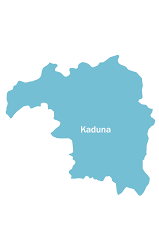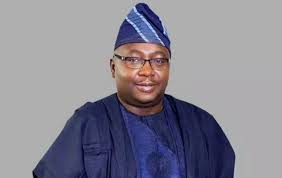After 35 years in various leadership positions in the trade unions, President Nigeria Labour Congress (NLC) Comrade Ayuba Wabba bows out February 8, 2023. He speaks to MOSES JOHN and other labour correspondents on some key national issues, including the 2023 general elections. Excepts.
Your tenure as NLC president is at its last lap, how would you describe your experiences in the Congress’ highest leadership position?
I started my trade union career in 1988 and I came from the students’ union movement. I was the president of National Union of Health Technology Students, as far back as 1988. So, if you look at it carefully from 1988 till date, it is almost 35 years. I have gone through 13 elections by the special grace of God and have not lost any. From the branch level to the state council level of NLC, to the national leadership of my union: Medical and Health Workers Union. I’m so proud of that union today, because it is the leading union in Nigeria in terms of development and perspective.
From there, I came into NLC as treasurer for eight years. And I’m serving out as president, also having served for eight years. I’m currently a member of the governing body of International Labor Organization (ILO) and I’m serving also my second time, at the ILO, and I’ve just finished my term as the first African to lead the International Trade Union Confederation (ITUC)
So, it is a rare privilege to have gone through these processes in the service of trade unions for 35 years, it is a very rare privilege.
My philosophy as a trade unionist has been guided by Mahatma Gandhi of India, who said ‘for you to change your society, you have to be that change yourself’. If you want a system to be transparent and you must fight corruption, you must be at the spot because if you are corrupt, you cannot fight corruption. That wisdom was what necessitated us to come with the philosophy of returning to our founding principles in 2015. The principles of speaking truth to power, whatever it takes.
So, it is an awesome experience to be a part of the struggle and group of people that fights for the rights of workers and Nigerians at large by extension.
Talking about fighting corruption, fuel subsidy crisis in Nigeria still lingers; how do you think the issues can best be resolved?
I can say on the basis of facts before Nigerians and all of us, that the issue of the fuel subsidy has remained the same issue for the past 30 years. Every government that has come will make promises. But once they come into office, either because of a lot of incentives associated with importation, or for obvious reasons, those promises have never been kept.
And there is no difference between 2015 till date and what happened in the past. Since the adoption of the 2003 IMF recommendation that we should base our pricing model on the import-driven, we have not actually gotten out of that, and labour has engaged this issue from 1999 to date. In some cases, they will actually withdraw the price but after a while the price will still be the way it is.
None of us imagined that after all those years, we will wake up in 2023 with a very long queue, with people also having to buy this product at very exorbitant price. I must repeat that these fuel subsidy issues are actually driven from outside this country by neoliberal forces. I remember the last engagement we had; when we had to stop the issue of removal of so-called subsidy and the meeting ended in sine die till date. The first person that came to my office was the Ambassador of Belgium to Nigeria.
He came and was inquiring why do we want to stop importation. I told him see; we are the only OPEC member country that still import 100% of petroleum product that we use. I said it is an irony. We are the only OPEC member country that I know in the world that still import petroleum product 100% and it beats our imagination.
Is refining rocket science that Nigerians cannot be able to refine? What then is the issue? The issue is simple. Few people benefit when you import, but when you refine, many people benefit. So, because of the inherent benefit in it when you refine, the few people that benefit when you import are not willing to address and stop this issue of imputation.
It can be stopped if there is political will to do that. And I’ve made the point severally. We have done a lot of research, we have made several publications on this particular issue, but it will take a system that is willing to work for the citizen and make the citizen not to suffer this inefficiency we suffer today in Nigeria for the system to be fixed.
We cannot always wish that the system be fixed. No, it can only be fixed if you have leaders that are ready to actually fix this problem. Removal of subsidy alone cannot fix the problem. We have seen that with diesel. We have seen that with kerosene. They said they have removed the so-called subsidy in diesel and kerosene. Are diesel and kerosene available? Are they affordable? The obvious answer is no. So by the time we say remove subsidy on PMS, what it will entail is that it will be the same situation with diesel and then kerosene.
Diesel today in many local areas is sold at between 800 and 900 Naira per liter. Is it affordable? It’s not affordable. As a major oil-producing country, is that acceptable? The obvious answer is no. And that’s why in the workers Charter of Demand, the first item there is; for us to take any candidate serious, he or she must tell us what they want to do with the issue of the refinery. One said he will sell the refineries and another one said he will remove subsidy.
If you remove subsidy, what will be fall back? Because removal of subsidy is easy. If you are refining here at home, you don’t even need to preach that I want to remove subsidy. What Obasanjo did to give some succor to citizens was swap. They swapped crude oil with refined products, because in a barrel of crude oil, you have more than 17 derivatives. So when you swap, you are sure that you give crude oil and then you receive refined product. That was how he mitigated the price and prevented the price from fluctuate the way it is fluctuating now.
As I speak, we are told that NNPC is the major importer. So even the consumption rate, what we consume per day have becomes a mystery because nobody can tell you exactly how many litres of PMS we actually consume per day. These are part of the challenges that we have engaged.
We have not been able to find solution. That’s the truth of it, despite the best of action sthat have been done from 1999 to date, and that’s why we made it as a campaign issue that every worker must have his PVC. Let us listen to their conversation about this issue. Do we want to continue the same trajectory of importing product that we can refine? And say we want to address the issue of subsidy? Subsidy can naturally be addressed. If we’re refining products for domestic use.
Take for instance, the issue of diesel is an eye opening to the fact that our government is not sincere to us. The easiest products to refine is actually diesel. That is what many of those illegal refineries are refining. Why not organise them into clusters, empower them, build modular refineries and say for a start; can we stop the importation of diesel?
I assure you if we stopped the importation of diesel, we have addressed, I think, 50% of the challenge because many of our machineries, many of the trucks use depend on diesel and therefore costs of goods and services will even come down. I was having a conversation with somebody recently at one part of the country. I wanted to buy watermelon and he said a piece is N1500. I asked why? I said in my place, one is either N100 or N200.
He said the major issue is transportation, for them to transport one truck of watermelon from where it is being produced, to where we are buying, that you will have to pay N1.5 million for the truck.
Four presidential candidates invited
On the eve of NLC Delegates Conference holding on 7th and 8th February 2023, we have invited the four major candidates and Nigerians, especially workers will hear them speak in the issue and decide who to vote for. Because we have lamented enough and it is time for action. This thing can be fixed.
We have the best brain around the world that can fix this issue. But because of interest of a few, they have refused to fix this problem. Instead, we are lamenting cost of subsidy is high.
I must also say categorically that even with the best of campaign, you cannot change such a system we have in Nigeria, except we have leaders that are ready to change the system. It is something that can be done. This one if the issues we have engaged over time and I can tell you that it has not been addressed.




